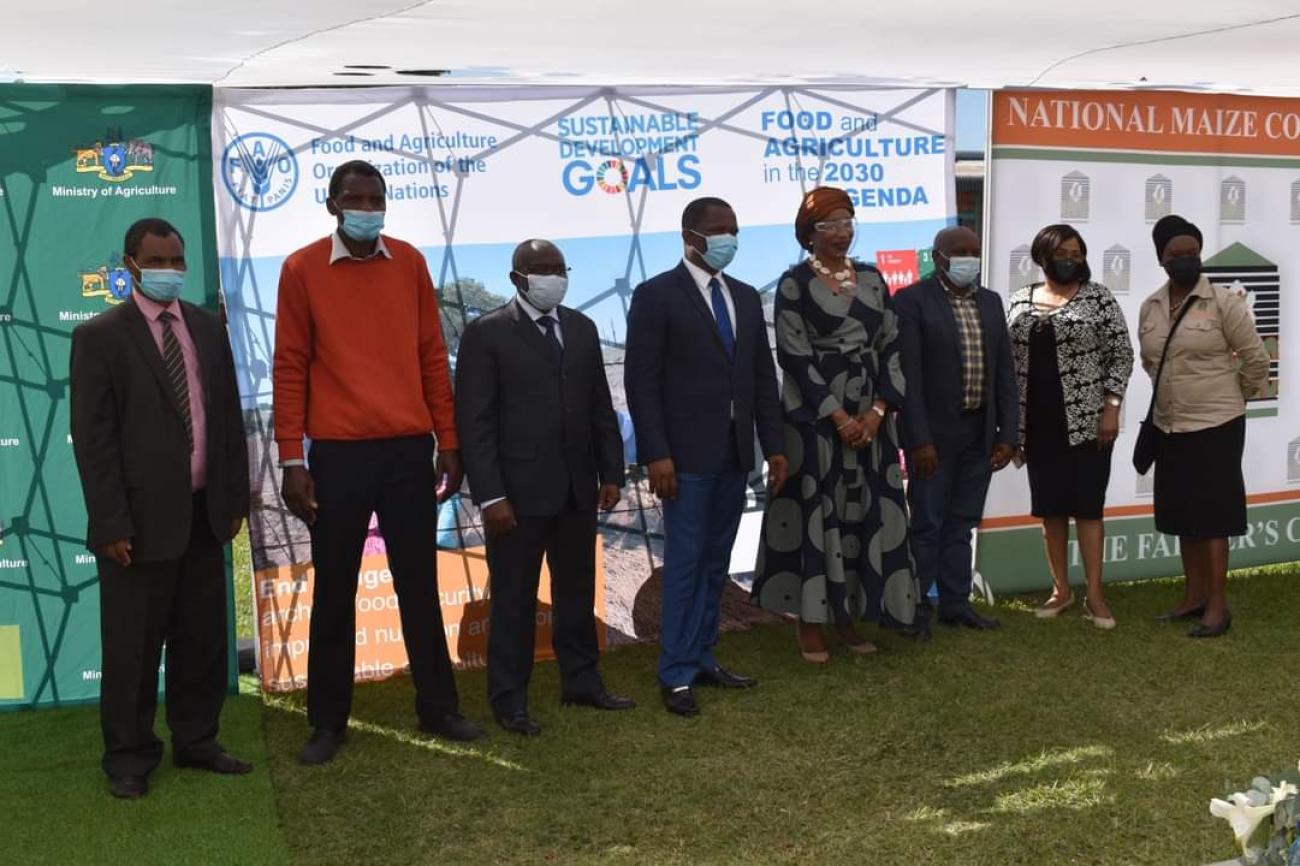Over 25 farmers stand to earn over E3,6 million from maize and beans planted this winter after getting free farm inputs.
The inputs, worth over E1 million, comprise of various assortments including a combined 60 metric tonnes of basal and top dressing fertiliser; 2.5 tonnes of maize seed; 26 metric tonnes beans seed; and an assortment of herbicides and pesticides.
The farmers, identified by the National Maize Corporation (NMC), are part of a project initiated by the Ministry of Agriculture to produce crops in winter to mitigate the impact of COVID-19 and assist the country meet its food security needs.
The initiative has been supported by the United Nations in Eswatini.
If all goes well, the farmers will produce over 621 metric tonnes of maize and 76 tonnes of beans.
Last year, the Ministry of Agriculture, through the National Maize Corporation, made a national call to all framers with a capacity and interest to produce maize and beans under irrigation during the winter season.
On the 12th of May 2021, the United Nations Food Agricultural Organisation (FAO) donated farm inputs worth over E1 million (USD 60,000) to the Ministry of Agriculture and NMC.
The inputs will be used for the joint production of 103.6ha of maize and 38ha of beans.
Minister of Agriculture, Jabulani Mabuza, noted that the support will not only help the country in terms of food security, but will also help the small holder farmers with income as NMC has guaranteed that she will buy the produce at a competitive price.
The Minister challenged the benefitting farmers to succeed so that the support from FAO can be used to set up a revolving fund. “Let me call upon all the beneficiaries of this input support to set the bar high for themselves and achieve more yield per unit area so that the country becomes food secured,” he said. “We want the support provided by FAO to create a revolving fund which can be accessed by other farmers in the future. So let us use this support as a springboard to self- sufficiency in our staple crops.”
The identification of the beneficiaries and the subsequent distribution of the inputs to the respective farmers and farmer groups will be done by NMC. The Ministry of Agriculture will provide extension services and monitoring during the production and post-harvest.
NMC chairperson, Dumisani Dlamini, stated that they will rely on the capabilities of the farmers for the project to succeed. He noted that 101 farmers had been identified for the production of the winter crops but only 25 will be assisted for now. The Minister appealed to other partners to contribute to the initiative.
FAO Country Representative, Dr. Patrice Tallo, challenged the farmers to make good use of the UN support and ensure that they are used for the right purpose to contribute to food security. He also thanked Government for proposing such an initiative. “May I take this opportunity to commend the Government for its proactiveness upon realization that the food and nutrition security of the country was at risk, in initiating a number of interventions to prevent a shortfall in supply of staples and grains amid an increase in domestic demand,” he said.
UN Resident Coordinator, Nathalie Ndongo-Seh explained that the donation was part of a broader programme involving other UN agencies (FAO, WFP, UNDP and UNICEF) aimed at protecting the livelihoods of Emaswati from the dire impacts of COVID-19. The funding support from UN COVID-19 Response and Recovery Multi-Partner Trust Fund (MPTF) amounts to about E9,5 million (USD 625,000).
“These funds cover two critical social protection components in the immediate response to COVID-19; first, social assistance interventions to address livelihoods and food insecurity challenges; and second, technical assistance to strengthen crisis responsiveness of social protection mechanisms,” she stated. “These two components enabled the use of social protection mechanisms to comprehensively address underlying inequalities and respond to urgent challenges of the pandemic and future crises.”
A representative of the beneficiaries, Sipho Mamba, noted that farming was a difficult job that needed the farmer to always be there. He then decried the skyrocketing costs of farm inputs. “We have the land and water but farm inputs are no longer affordable,” he said. The farmer also requested the Minister to mitigate the effects of climate change by constructing dams across the country, especially in drought stricken communities in the Lubombo Region.










